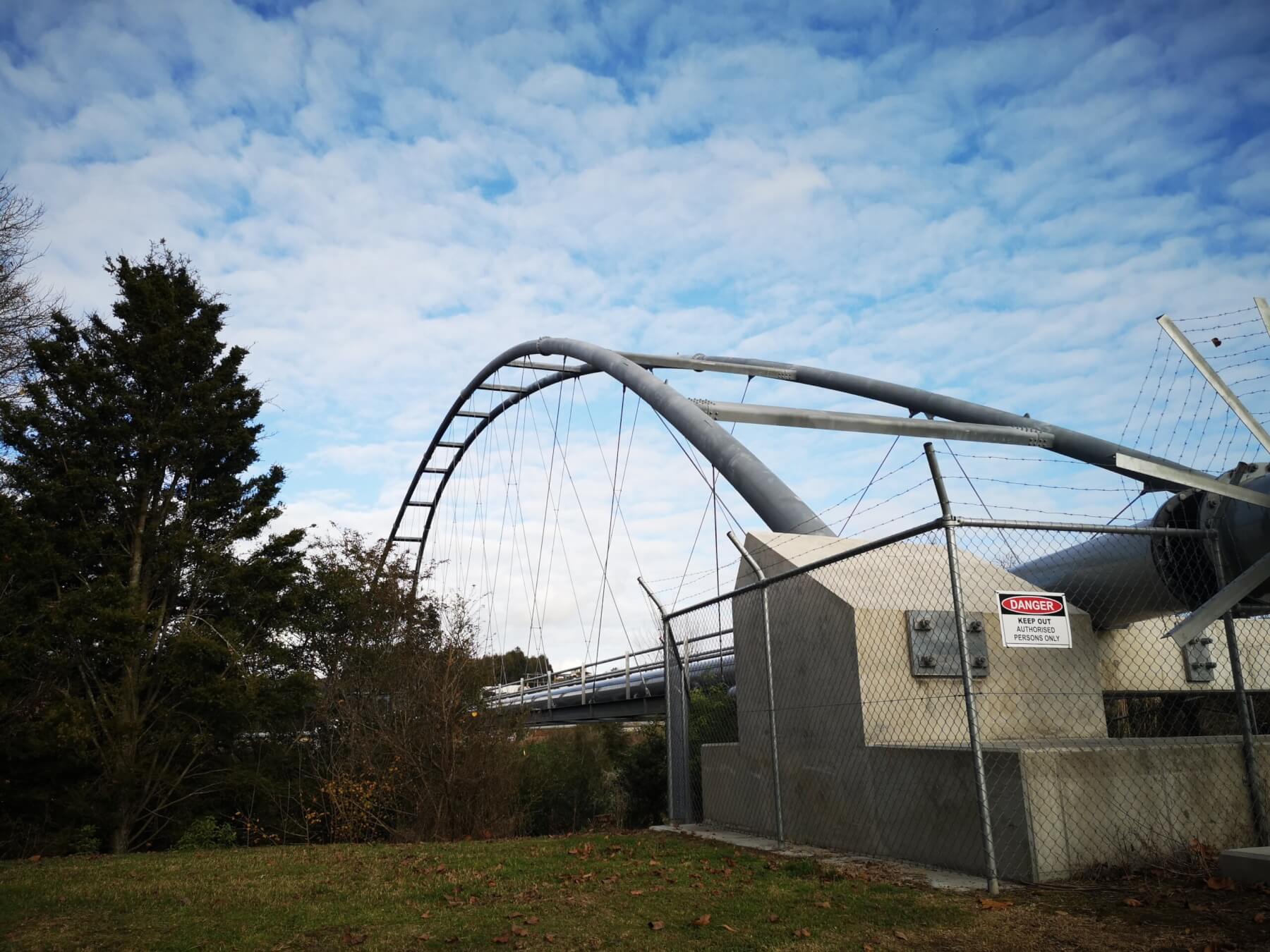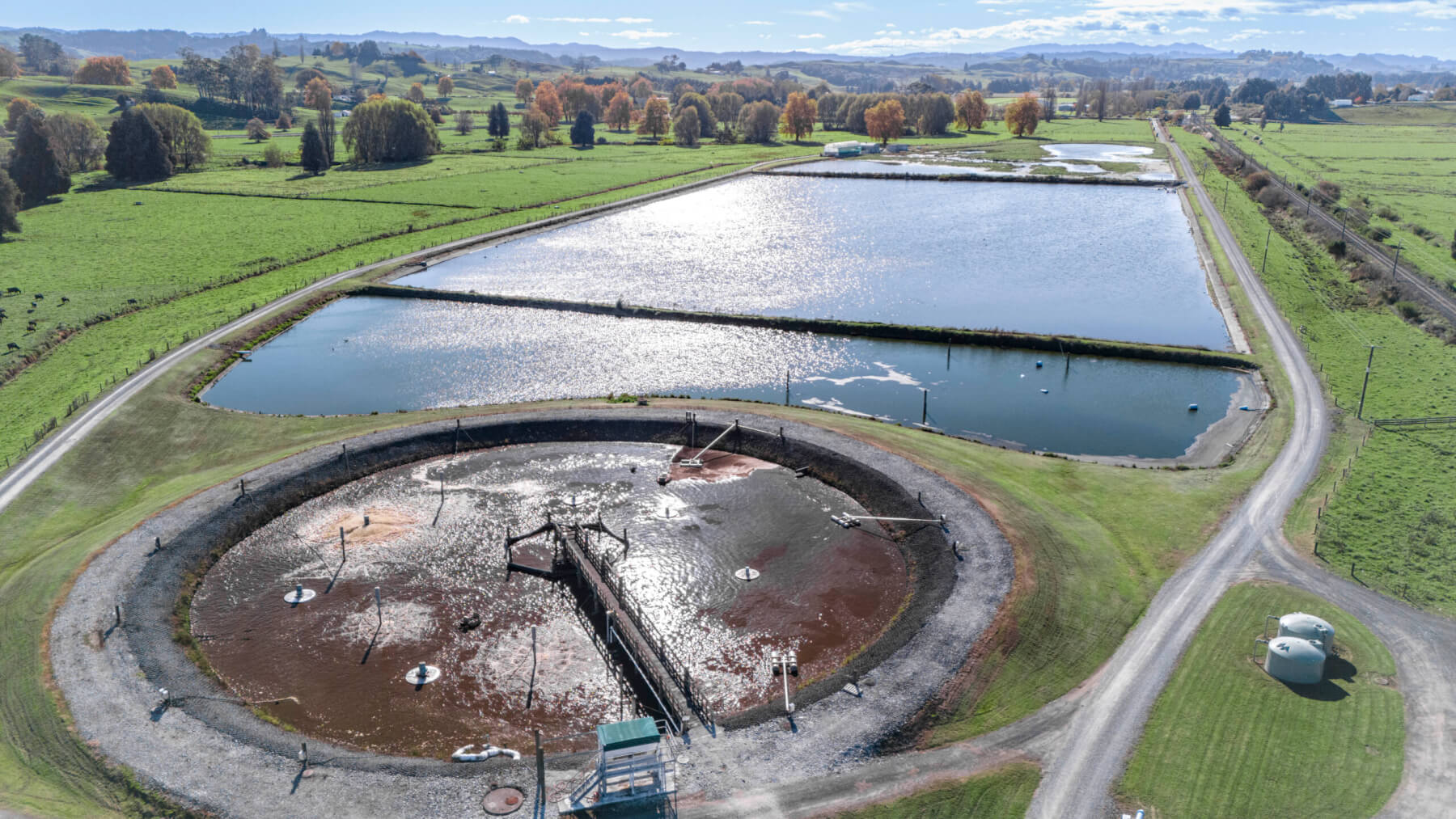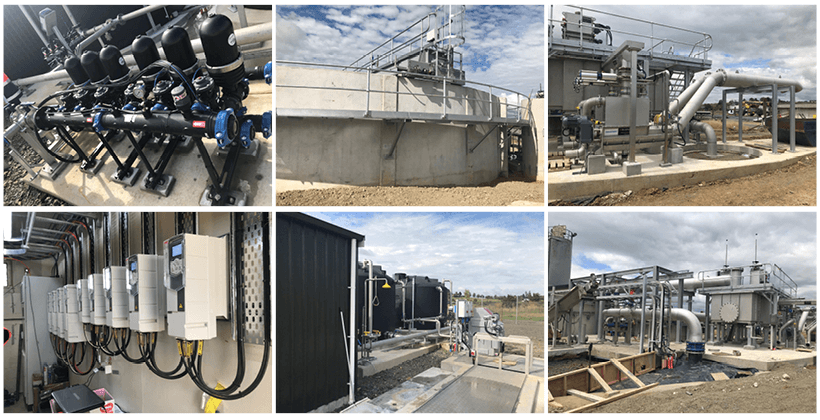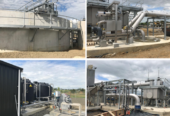District councils are signing up to the Waikato Waters Done Well philosophy.

Six years ago Waipā upgraded the Cambridge wastewater pipe and the pipe bridge which crosses the Waikato River. Photo: Mary Anne Gill
Waipā and Waitomo council both agreed last week to enter into a Heads of Agreement as part of the project.
The decisions commit the councils to working together to investigate the establishment of a council-controlled organisation (CCO) to deliver water and wastewater services.
Matamata-Piako District Council and South Waikato District Council have also joined up.
Waitomo District Council chief executive Ben Smit told The News the decision would give his council a second option to take to its community beyond the status quo.
“Waikato Water Done Well is coming together really well,” Smit said.
“The Waikato is quite a long way ahead with the development of water regions.”
Kāhu Manawa managing director Vaughan Payne appeared before Waikato Regional Council on Thursday with an update on the regional approach.
Payne has been leading Water Done Well on behalf of the Waikato Mayoral Forum and local iwi chairs for 18 months and holding weekly meetings with council chief executives for two months.
“We have got 100 per cent approval so far, because only four councils have formally considered it,” Payne said.
Five councils scheduled to consider signing the agreement are Ōtorohanga (to decide on December 10) Waikato (December 12) and Hauraki (December 18). That will leave Taupō and Thames-Coromandel district councils to make a decision.
“We are definitely signing,” said Hauraki district mayor Toby Adams.
“By signing up to this it gives those councils agreeing to working together the opportunity to design something that will work for all councils and communities.
“And by sharing knowledge and experience and work programmes we can provide a really great outcome for our communities with resilience good infrastructure at a more competitive cost.”

Te Kuiti Waste Water plant.
Payne told Waikato Regional Council the traditional approach saw every council looking at wastewater treatment plants in isolation of what was happening in the rest of the Waikato River.
Using a Waikato River catchment approach, rather than a wastewater treatment plant by plant approach, would save millions of dollars across the region as it had for Matamata-Piako District Council, he said.
“Instead of having five different consent applications they combined them into one, even though some consents expired in 10 years’ time they decided to get them to all have a common expiry date and get them considered together,” Payne said.
“At a $6 million budget they spent $2 million on the consent, so a $4 million saving on consent processing, and they expect a $20 million saving on capital works because they are looking at nutrient balancing between the plants to get the best return on investment for the Firth of Thames.”
Under the Government’s Local Waters Done Well legislation, all councils are required to produce a water services delivery plan by September 2025, with a focus on ensuring future delivery is financially sustainable and meets quality standards.
Options include forming an internal business unit to deliver water services, joining with others to form a multi-council-controlled organisation, or forming a single council water organisation to deliver those services.

Finishing works took place on the upgraded Te Awamutu Wastewater treatment Plant three years ago. From top (L-R): new UV system, clarifier and screen. Bottom (L-R): new electrical room, UV and screen. Photo: Supplied.








